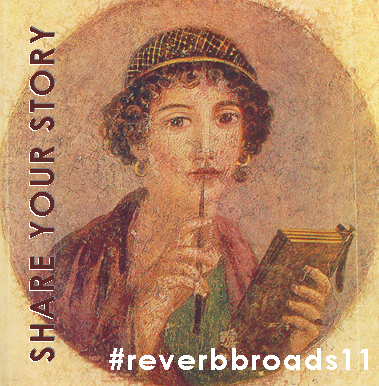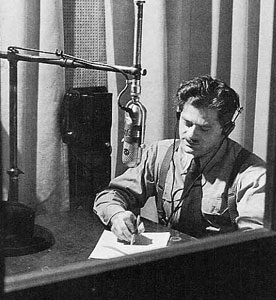 Geography, Psychology
Geography, Psychology  1 Comment
1 Comment The Year of the Volcano
I left for New Zealand with a conundrum packed in my carry-on: how I could I celebrate the winter solstice my soul needs this time of year in a place where it’d be the summer solstice? At first, I thought Midsummer’s Eve would be the answer, but the short night isn’t deep enough to sink into. Even in the dark, the smell of green things and the fresh sunset would puncture my illusion. My body would unfurl like a leaf in the evening warmth; no curling in to protect my blood-hot heart from the winter chill.
Two days before the solstice, I did something that the telling of which still feels blocky and foreign in my mouth: I climbed a volcano. Guarding and menacing the Hauraki Gulf, in the curve of Auckland, stands Rangitoto Island. It’s visible all along the North Shore, a compass point of dark green above the water. Locals like to remind visitors that dormant Rangitoto is overdue, like a spun-out pregnancy.
The landscape is both lush and austere: blooming trees and thick foliage growing around fields of hot black volcanic rubble. The higher you climb, the fewer basalt fields there are, and the jungle-like nature arches all around. The massive caldera looks like an Alpine valley.
But as I stood, looking down into that crater, my insight shifted and I saw living fire beneath that quiet forest floor. The rolling, arcing, molten center enfolded me just as the nourishing dark earth did, all in the same place. I felt grounded and explosive. I felt firm and strong and liquid and volatile. I was held in solid rock at the edge of heat so intense it melted both rock and body.
The barrier between these forces may seem stark. But the whole thing—the volcanic core and the blackness of rock and fertile soil—exist to create. The cataclysm that cracked the sea floor with fire and steam raised Rangitoto into being. What destroyed and choked and covered the sun in ash created a point on the surface of this planet that wasn’t there before. And atop that cooling land, rocky and barren, the nutrients that had churned in fire grew a vibrant diversity of plants, a biome that drew the lively creatures that formed the orchestral theme as we climbed. The island breathed in sea water around its porous edges, and filtered the gulf to turquoise clarity.
Another eruption is due. Rangitoto will destroy and create again. The destruction is not malicious; the creation is not joyous. But they will both be powerful and life-changing, no matter how small the event. Until then, the island is a vessel of potential. They call that dormancy, but there is nothing sleepy or restful about Rangitoto. It is patient. It waits. What looks like doing nothing couldn’t be further from the truth.
This is how I will create. The need to be still allows my fiery heart to fill and melt impurities. I cannot produce without this preparation; I am not losing time as I conserve my resources. Making changes that clear away old growth and connections is not cruel or unloving. Transforming stale material and ideas makes me stronger and more authentic. And I have the power to raise the earth and make something this planet has never known before. I am the volcano.





 When I was in college, I had the great good fortune to see Kurt Vonnegut, Jr. speak on campus. He was as hilarious, irreverent, and insightful as his books. I wish I remember more of what he discussed, but just one thing has survived the years and leaks of memory.
When I was in college, I had the great good fortune to see Kurt Vonnegut, Jr. speak on campus. He was as hilarious, irreverent, and insightful as his books. I wish I remember more of what he discussed, but just one thing has survived the years and leaks of memory.
 The time for ritual is at hand. I stand in the place of my power, tools of the magic I will work laid out before me– silver, wood, and steel. Fire and water are at my command, earth and air held back by my will. In this time, I will draw on the forces of creation, shaping elements. Here, I am an alchemist, a hand of the goddess herself.
The time for ritual is at hand. I stand in the place of my power, tools of the magic I will work laid out before me– silver, wood, and steel. Fire and water are at my command, earth and air held back by my will. In this time, I will draw on the forces of creation, shaping elements. Here, I am an alchemist, a hand of the goddess herself. While I am not so bold as to commit to such a statement myself, the power of the kitchen, and what it summons and creates, is not to be denied. Though I began down the path of Wicca in solitude, I learned the magic of cooking as all good magics are best learned : at the elbow of a wise and laughing grandmother. The rules were simple. Wash your hands. Clean as you go. Read the whole recipe before you start. Measure with care. And, most importantly, share the joy as often as possible–that’s why there are always enough beaters and spatulas and bowls for everyone. If you abide by that last rule, no spills or scorches can spell failure. Just vacuum up the oatmeal, wash the egg out of your hair, and laugh about the fun you had.
While I am not so bold as to commit to such a statement myself, the power of the kitchen, and what it summons and creates, is not to be denied. Though I began down the path of Wicca in solitude, I learned the magic of cooking as all good magics are best learned : at the elbow of a wise and laughing grandmother. The rules were simple. Wash your hands. Clean as you go. Read the whole recipe before you start. Measure with care. And, most importantly, share the joy as often as possible–that’s why there are always enough beaters and spatulas and bowls for everyone. If you abide by that last rule, no spills or scorches can spell failure. Just vacuum up the oatmeal, wash the egg out of your hair, and laugh about the fun you had. But I have to be honest about something, and it’ll probably blow the lid right off any sort of “kitchen witch mystique” I may have managed to build. I am no gourmet. I’ve never taken a cooking class. Those brownies which my friends and co-workers steadfastly maintain are the best they’ve ever tasted? Betty Crocker, Fudge Supreme, $2.49 with coupon. That chili whose aroma wafts out like tickling fingers when I open the door on a cold winter night, drawing my husband in all the quicker? Packet of spices, canned beans and tomatoes. Simmer on low for 20 minutes. That’s it. And I’ve never made a secret of it.
But I have to be honest about something, and it’ll probably blow the lid right off any sort of “kitchen witch mystique” I may have managed to build. I am no gourmet. I’ve never taken a cooking class. Those brownies which my friends and co-workers steadfastly maintain are the best they’ve ever tasted? Betty Crocker, Fudge Supreme, $2.49 with coupon. That chili whose aroma wafts out like tickling fingers when I open the door on a cold winter night, drawing my husband in all the quicker? Packet of spices, canned beans and tomatoes. Simmer on low for 20 minutes. That’s it. And I’ve never made a secret of it. So I may not always remember all the poetic invocations when I call the Watchtowers in a Circle, but I remember the favourite food for every loved one in my life, and most of the recipes. And so I might be dreadful at keeping a proper herbal grimoire stocked–my spice racks are the envy of all who survey. I consider myself well on the road to the Lord and Lady’s wisdom, because I know the seat and value of a generous, abundant power within myself, one of the greatest signposts on everyone’s spiritual journey. And when I get there, I’ll be sure to have a dish to pass.
So I may not always remember all the poetic invocations when I call the Watchtowers in a Circle, but I remember the favourite food for every loved one in my life, and most of the recipes. And so I might be dreadful at keeping a proper herbal grimoire stocked–my spice racks are the envy of all who survey. I consider myself well on the road to the Lord and Lady’s wisdom, because I know the seat and value of a generous, abundant power within myself, one of the greatest signposts on everyone’s spiritual journey. And when I get there, I’ll be sure to have a dish to pass.

